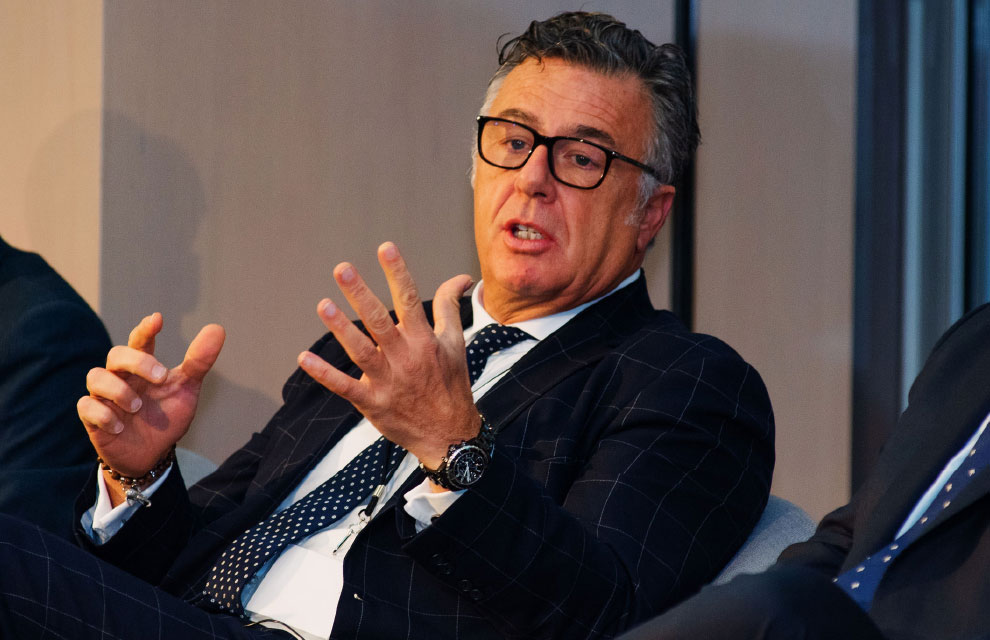Liquidity and Sustainability Facility
Gabriele Frediani, head of development and market infrastructure coverage for Europe at the Liquidity and Sustainability Facility, speaks to Justin Lawson about his new position at the firm and how it operates to support the liquidity of African sovereign eurobonds
Gabriele, tell us about your move to join the Liquidity and Sustainability Facility.
About a year ago, when I met the firm’s CEO David Escoffier, my curiosity was piqued as I have always been interested in repo beyond its traditional shores. For most countries in the world, having a functioning repo market, in one shape or another, is key. When I spoke to Escoffier at COP28, I was flattered and excited to join a team of skilled and driven professionals, having already delivered trades for an organisation with a genuine purpose.
Can you provide an overview of LSF and its objectives?
The Liquidity and Sustainability Facility (LSF) is a pioneering initiative established with the support of the United Nations Economic Commission for Africa (UNECA) and Afreximbank. It aims to bolster the liquidity of African sovereign eurobonds while simultaneously incentivising investments aligned with Sustainable Development Goals (SDGs) and green initiatives across the African continent.
By engaging with both African governments and private investors, our primary objective is to enhance liquidity in the market to the level of international standards, thereby fostering debt sustainability for African nations. LSF’s objective is to reduce the cost of borrowing by African sovereigns, increase the pool of private capital willing to invest in Africa and mobilise affordable resources for green investments.
How does LSF support the liquidity of African sovereign eurobonds, and what impact does this have on borrowing costs for African nations?
LSF plays a crucial role in improving liquidity premia for African sovereign eurobonds, which historically have faced significant borrowing costs. Through our engagement with various stakeholders, we aim to compress yields by strengthening demand and consequently enhancing the price of eligible sovereign bonds. This, in turn, could potentially save African nations an estimated US$11 billion on borrowing costs over five years. By reducing these costs, we seek to support the debt sustainability of African nations, thereby promoting economic stability and growth.
Could you elaborate on how LSF incentivises green and SDG-related investments in Africa?
LSF is committed to promoting sustainability-linked investments in Africa by utilising its resources to engage with investors, particularly those interested in green and SDG-linked initiatives and providing better terms and conditions for SDG-aligned African sovereign eurobonds. Currently, the share of sustainability-linked (GSS) bonds issued in Africa accounts for less than one per cent of the global total, indicating significant potential for growth. By facilitating investments aligned with SDGs and green objectives, we aim to support the green and sustainable recovery of African countries while simultaneously addressing pressing environmental challenges.
How does LSF plan to contribute to the development of a mature repo market for African sovereign eurobonds, and what benefits would this bring to the continent?
Until now, while a few African nations have pioneered local repo markets, Africa has lacked a mature repo market on par with those of the G7 countries to enhance the liquidity of African government bonds and improve their competitiveness in global markets. LSF, as a professional market participant with strong stakeholder support, seeks to help the African sovereign eurobonds repo market achieve the same level of maturity.
Through our engagement with diverse financial institutions globally and in Africa, we aim to establish a deep and solid repo market for African sovereign eurobonds. A well-developed repo market can contribute to African governments' ability to finance themselves on international financial markets under favourable conditions. For private investors, this means they can conduct repo transactions with African bonds with the same quality standards as in mature economies. Furthermore, our goal is to level the financial playing field for Africa and contribute to changing the perception private investors have of these markets.
LSF engages with various counterparties. What is the criteria for selecting counterparties and the significance of such engagements?
LSF engages with counterparties of the highest quality and reputation, including insurance companies, banks, pension funds, asset management firms, and public and private investment funds. We prioritise counterparties established in recognised jurisdictions to ensure the integrity and reliability of our engagements.
Can you discuss the governance structure of LSF and its commitment to transparency?
LSF operates under high standards of governance and is supervised by a high-quality board composed of directors representing various stakeholders. This ensures adherence to our mission of public good and transparency. We are committed to upholding the highest standards of transparency in all our operations.
How does LSF engage with African governments and international organisations to achieve its objectives?
LSF has engaged in extensive collaboration with African governments and international organisations to address the challenges facing African countries. Endorsements from 26 African countries at the CoM2022 conference, organised by the United Nations Economic Commission for Africa, underscore the support for our initiatives. Additionally, we have worked closely with organisations such as the International Monetary Fund (IMF), World Bank Group, G7, G20 and COP teams to garner support and facilitate our operations.
What does LSF have in the pipeline over the coming 12 months?
I will focus on developing partnerships with European institutions, such as CSDs and ICSDs, triparty agents, exchanges, trading platforms and central banks, and more broadly building a solid deal pipeline on the continent.
We are keen to contribute to crowding in more private investors from different horizons wishing to participate in the African sovereign eurobonds market, particularly if they have a focus on African green, social and sustainability eurobonds.


